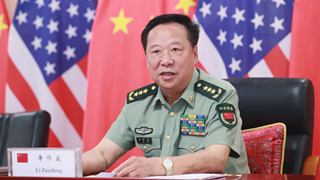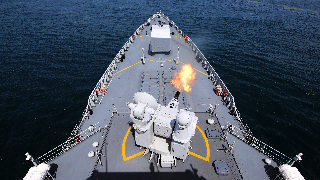
On July 16, local time, US President Joe Biden ended his tour to the Middle East. During the visit, Biden vigorously launched a diplomatic offensive, frequently hyping up the "Iran threat". It is widely believed that the US is planning to create a so-called "Middle East version of NATO" against Iran, though it’s not sold well among some countries in the Middle East.
Why did Biden's tour in the Middle East end up with the failure of successive attempts? Military observer Li Shaoxian believes that Biden's trip to the Middle East features extreme utilitarian, since he tried to address such issues as "pacifying US allies in the Middle East to cope with Europe’s energy crisis". Biden's first trip to the Middle East is but an emergency move for three purposes, that is, to lobby oil-exporting countries to increase oil production and reduce oil prices; to improve relations with traditional allies in the Middle East to seek more interests; and to create a "Middle East version of NATO" and form cliques targeting Iran, which will play a role in countering both China and Russia.
According to foreign media reports, Biden, however, did not receive a response in wooing the countries in the Middle East to counter Iran, and some regional countries even expressed their willingness to ease or develop diplomatic relations with Iran many times during his visit. Li Shaoxian said that the reason why Biden's high-profile visit has achieved little lies in a huge gap between the US current policies and the real needs of the countries in the Middle East.
Multiple conflicts do exist between the goals that the US wants to achieve and its policies, and major countries in the Middle East are reluctant to cater to the US. Although Biden sought to improve relations with its traditional allies in the Middle East, he had to play the "human rights card" when visiting Saudi Arabia as constrained by the domestic political situation. Unfortunately, Saudi Crown Prince Mohammed bin Salman bin Abdulaziz paid little attention to this. According to Li Shaoxian, countries in the Middle East have become increasingly aware of strategic autonomy, and few of them are willing to act as "pawns" at the cost of their own interests merely for American hegemony.
Li Shaoxian pointed out that there are two major obstacles for Biden to scratch up the "Middle East version of NATO". First, there is no consensus reached on "who to deal with". Except for the US and Israel, few countries in the Middle East have openly labeled Iran as an enemy, not to mention that the US also intends to make these "allies" to stand on the opposite of Russia and China. Second, the US favors Israel in the Israel-Palestine conflict, which has functioned to keep the governments of Arab countries at bay. Therefore, it is inevitable that Biden's visit has been coldly received with results achieved far away from expectation.
Editor's note: This article is originally published on military.cnr.cn, and is translated from Chinese into English and edited by the China Military Online. The information, ideas or opinions appearing in this article do not necessarily reflect the views of eng.chinamil.com.cn.











